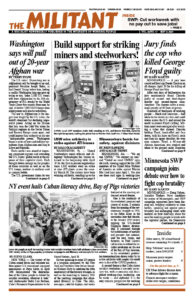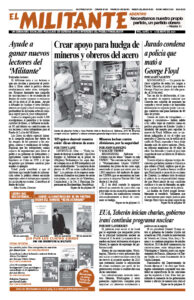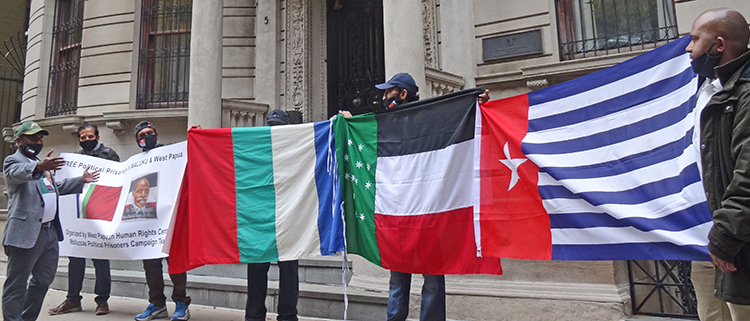NEW YORK — A picket outside the Indonesian Consulate here April 12 protested military repression in West Papua and elsewhere in the archipelago. The West Papuan people “experience systemic racist discrimination,” Julian Howay, a warehouse worker in Atlanta originally from West Papua, told the protest, “due to the occupation and colonization by Indonesia.”
On behalf of the West Papua and Moluccan Coalition USA, he read a statement calling for West Papuan self-determination that was later submitted to the 20th session of the U.N. Permanent Forum on Indigenous Issues, to be held April 19-30.
Howay said the indigenous people of West Papua, as well as those in the nearby Moluccas, share centuries-old cultural ties. “Despite having abundant natural resources,” these two regions are still the poorest in Indonesia. He noted the West Papuan people “come from the Melanesian ethnic group,” common to other islands across the South Pacific. This includes Papua New Guinea, the eastern half of the same island as West Papua is on.
The U.S. government engineered a deal called the New York Agreement in 1962 that transferred control of West Papua to the U.N. for a year and then to Indonesia. No one on West Papua was consulted.
First under the left-leaning government of Sukarno, and then, after a military coup led by General Suharto and the slaughter of hundreds of thousands of Maoist Communist Party members and labor and peasant activists, the subjugation of West Papua was entrenched.
During “the reform era since the fall of the military dictator Suharto,” the statement notes, “there is still violence, extrajudicial killings, restraints on democratic space,” including the deployment of “large-scale military operations to secure the exploitation of Papua’s natural resources.” The territory’s vast tropical forests “are currently in a state of degradation and deforestation” as a result of “the expansion of large-scale oil palm plantations.”
West Papuan independence
The Indonesian annexation in 1963 blocked independence, a move supported by imperialist rulers from the U.S. to Australia, justified by Cold War anti-communist rhetoric. In fact, Washington had its eyes on the highly valuable gold, copper and other mineral resources there.
The Indonesian rulers “then carried out a similar military invasion” in 1975 to annex the territory of East Timor (Timor Leste), “previously colonized by the Portuguese,” the statement said. After 24 years of colonization by Indonesia, the East Timorese people were finally able to gain independence in 1999.
The declaration demands the immediate unconditional release of 14 Maluku and numerous Papuan political prisoners, all jailed for voicing their aspirations for independence. It calls for self-determination for the two peoples of West Papua and Maluku.


